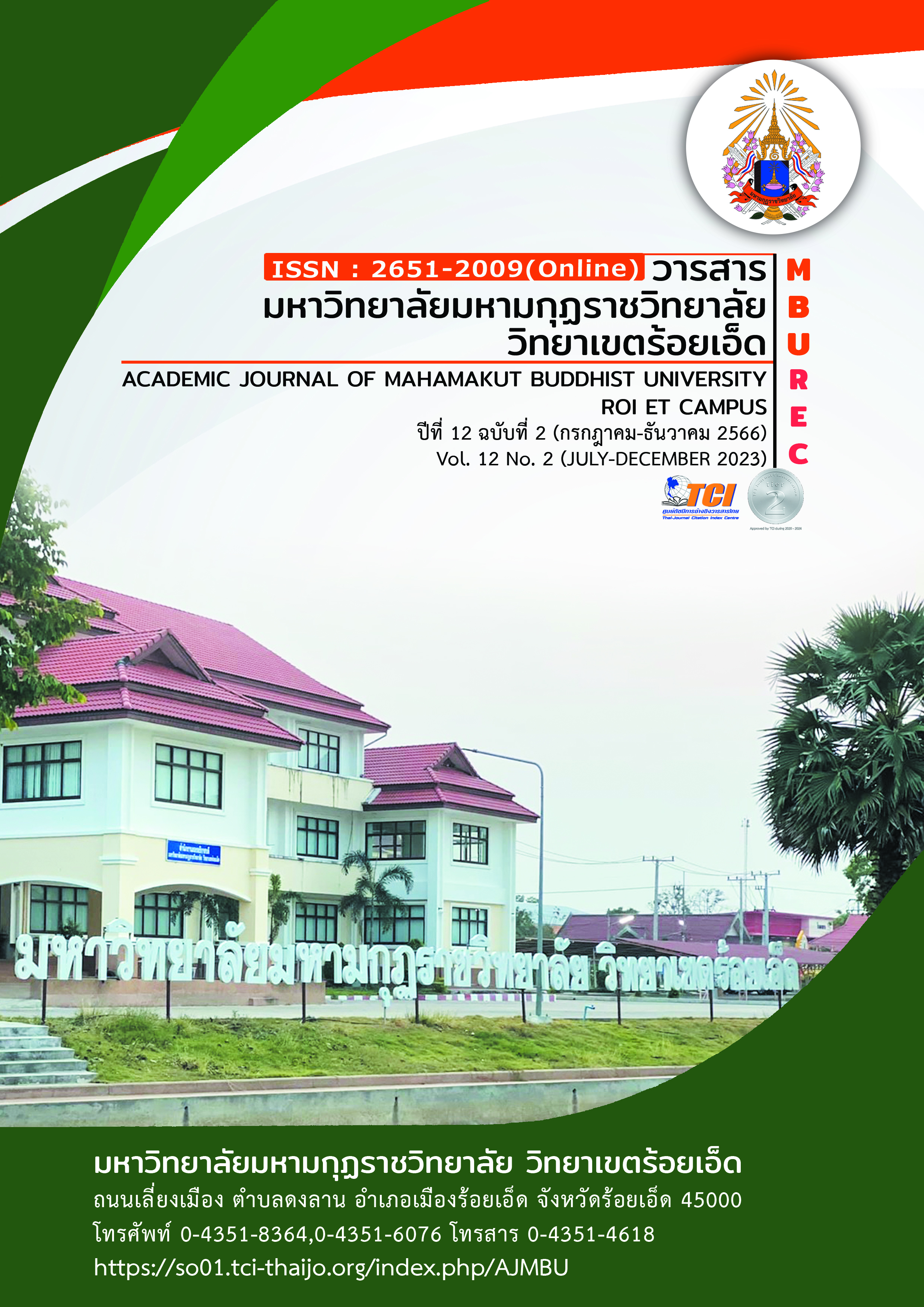THE DEVELOPMENT OF ENGLISH READING COMPREHENSION BASED ON CONSTRUCTIVISM OF GRADE 3 STUDENTS
Main Article Content
Abstract
The purposes of this research were: 1) to test English reading skills for pre-school and post-study understanding by managing constructivist theory learning. My family grade 3 2) to compare English reading skills for understanding by managing constructivist theory learning. My family grade 3 after studying with 70 percent criteria 3) to study the satisfaction of third graders towards constructivist theory learning management. The samples used in the research were 24 third-graders who were studying in second semester of the academic year 2021. Ban Lung School (Maiuraphakhom). Nakhon Ratchasima Primary Educational Service Area Office 5 1) Constructivist Theory Learning Management Plan. 2) Reading proficiency test for English comprehension the statistics used in the analysis include percentage, average, standard deviation, hypothesis test using Wilcoxon Signed Ranks Test 3) student satisfaction test for teaching activities for understanding constructive English.
The research findings were as follows: 1) The student learning achievement in English reading for understanding by learning management According to constructivist theory. My family grade 3 was higher than before students’ studying at the 0.05 level. 2) The student learning achievement in English reading development for understanding by managing constructivist learning. My family grade 3 was statistically significantly at the .05 level. 3) A test of student’ opinions toward teaching activities for understanding English based on constructivist theory, as a whole, the attitude toward English at a high level.
Article Details

This work is licensed under a Creative Commons Attribution-NonCommercial-NoDerivatives 4.0 International License.
References
จุฑาทิพย์ ชัยภพ. (2564). การพัฒนารูปแบบการสอนภาษาอังกฤษโดยใช้ทฤษฎีคอนสตรัคติวิสต์เพื่อส่งเสริมทักษะการอ่านเพื่อความเข้าใจและการคิดวิเคราะห์ของนักเรียนชั้นมัธยมศึกษาปีที่ 3. นครราชสีมา : โรงเรียนบัวใหญ่ สังกัดองค์การบริหารส่วนจังหวัดนครราชสีมา.
ทิศนา แขมมณี. (2547). ศาสตร์การสอน: องค์ความรู้เพื่อการจัดกระบวนการเรียนรู้ที่มีประสิทธิภาพรูปแบบการเรียน การสอนทางเลือกที่หลากหลาย. กรุงเทพมหานคร : สำนักพิมพ์แห่งจุฬาลงกรณ์.
นุรอานี โตะโยะ. (2555). ผลของการสอนตามแนวคิดวิธีธรรมชาติต่อความสามารถทางภาษาอังกฤษของนักเรียนระดับเตรียมความพร้อม. วิทยานิพนธ์ศึกษาศาสตรมหาบัณฑิต สาขาวิชาเทคโนโลยีและสื่อสารการศึกษา. คณะศึกษาศาสตร์ : มหาวิทยาลัยสงขลานครินทร์.
Anderson. (1999). Exploring Second Language Reading: Issues and Strategies. Boston, MA : Heinle & Heinle.
Duffy, T. M., & Cunningham, D. J. (1996). Constructivism: Implications for the Design and Delivery of Instruction. In D. H. Jonassen (Ed.), Handbook of Research for Educational Communications and Technology. NY : Macmillan Library Reference USA.
Eskey, D. (2005). Reading in a Second Language. In E. Hinkel (Ed), Handbook of research on second language teaching and learning (pp. 563-580). Mahvah, NJ : Lawrence Erlbaum.
Harmer, J. (2007). The Practice of English Language Teaching. Harlow : Pearson Education.
NCSALL. (2005). The Relationship of the Component Skills of Reading to Performance on the International Adult Literacy Survey (IALS). English : National Center for the Study of Adult Learning and Literacy, Boston, MA.
Oranpattanachai, P. (2010). Perceived Reading Strategies Used by Thai Pre-Engineering Students. ABAC Journal. 30(2). 26-42.
Pretorius and Naude. (2002). A Culture in Transition: Poor Reading and Writing Ability Among Children in South African Townships. Early Child Development and Care. 172(5). 439-449.


